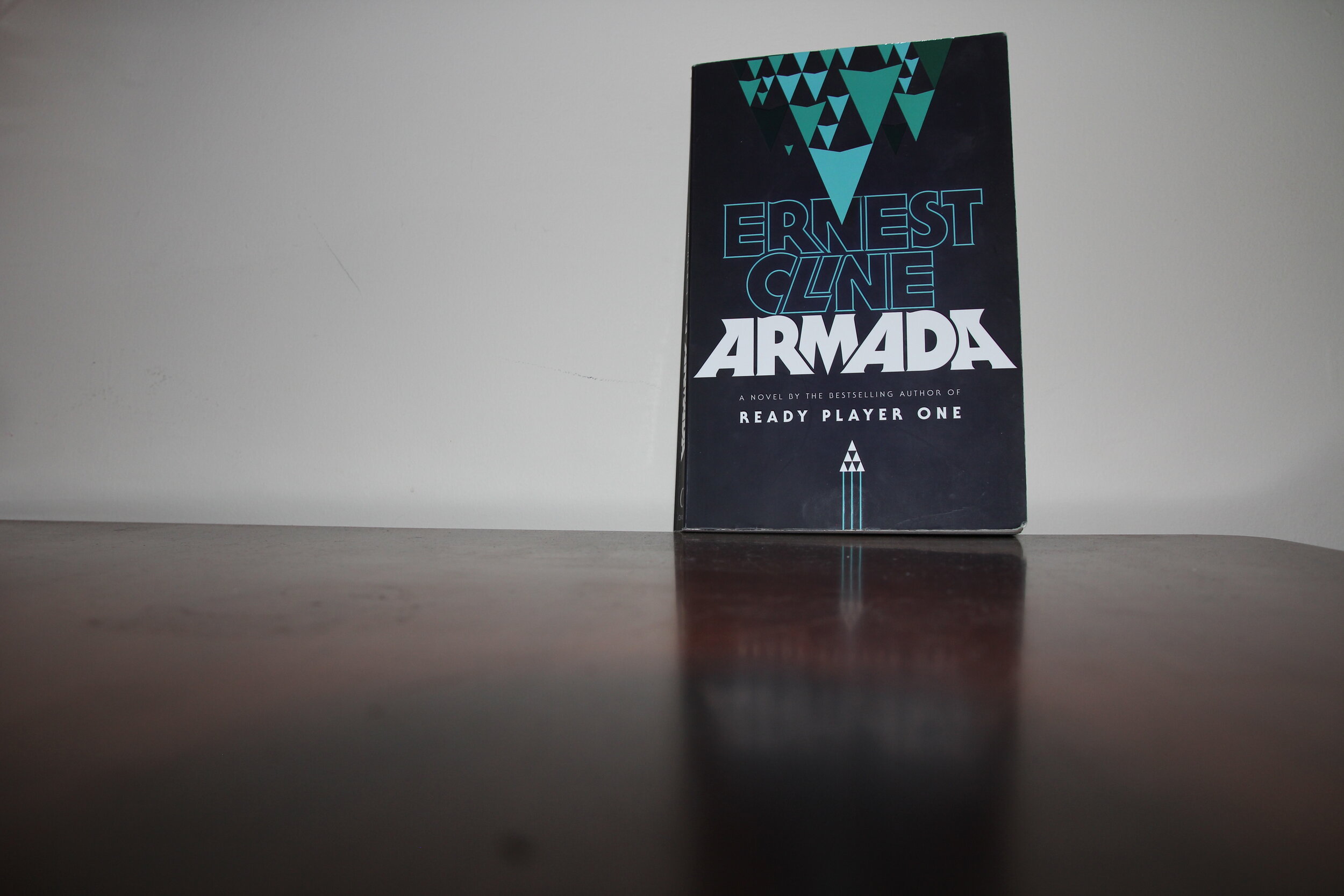Ready, Player Two? Ernest Cline’s Armada and how it measures up
Ernest Cline’s hit 2011 debut Ready Player One was "the pure, unfettered brainscream of a child of the 80s," as American writer and Juno chief executive Charles Ardai memorably put it.
For the uninitiated (where have you BEEN?) the novel wove a veritable treasure trove of 80s movie, gamer and pop-cultural references into an engaging post-apocalyptic sci-fi novel relying heavily on these references for its plot development – a novel at once more exciting, more significant in style and more original in conception than the description I just gave could possibly convey.
In short, it created waves of excitement in every 80s-raised-or-remembering person, one of whom I am proud to be (I was born the same year as The Goonies, yo). It excited the rest of the world too, enough for Steven Spielberg lay claim to directing the movie version, now due in 2017.
So obviously, no pressure on that second novel to succeed, Cline.
Enter Zack Lightman, an 18-year-old gamer who lives with his mom in Oregon. His father died in an explosion at 19, when Zack was just a baby, and the young doppelganger lives in a virtual shrine to the memory of his dad, who bequeathed his obsession with (yes...) 80s movies and games to his son by way of a collection of possessions in the attic of the home Zack and his mother now share with just the ageing beagle, Muffitt.
Zack, a dreamer already dealing with some anger issues and worried about his own grip on reality after spending too much time living in the world of his father’s games, notes and conspiracy theory-filled journals, thinks he must finally have lost the plot when one day he sees a ship from global hit game Armada circling the skies outside his classroom window.
But it soon becomes clear that these is a lot more at stake here than one teenager’s sanity, and this is maybe the first time in history that being a really, really good gamer can be called a life skill – a skill crucial to the future of the human race.
Despite my clearly being a member of the target audience, my kinship with the subject matter here ends abruptly at the word 'gaming'. Thankfully, my long association with nerds has given me the vocabulary to cope, and even if you don’t care about the 80s or gaming, if you have any interest in the nature of modern sci-fi writing, I’d encourage you to give this a try.
Like its predecessor Ready Player One, Armada features the same endearingly enthusiastic tone, like your best friend chewing your ear off about their latest obsession. A nerd’s wet dream, it’s sharp and humorous, giving the reader an almost immodestly fun ride. It really sounds as though Cline had a ball writing this, particularly some of the wise-cracking dialogue, and that kind of enjoyment is contagious.
The writing is not amazing or life-changing. It’s not full of stirring descriptions or memorable quotes. Several times I am jarred slightly by a choice of adjective or simile. But it doesn't need to be poetry. The language is entirely functional and the sheer momentum of this story needs no help. The pictures Cline paints are clear as daylight and lent soul by the central theme of Zack's utter devotion to the idea of his father.
Funnily enough, I remember thinking as I read this that it read a bit like the novelisation of a movie, or indeed the script for one. Cline's books are both very cinematic stuff, so it surprises me not one whit that Spielberg is all over this.
The author has written a confident and worthy successor to Ready Player One and confirmed his place as a truly original and exciting new voice in sci-fi.
They'll both undoubtedly make kickarse movies, so keep your ear to the ground (or your eyes on the skies).
Want more sci-fi book reviews?
Ursula le Guin, The Dispossessed
William Kotzwinkle, The Amphora Project
M. John Harrison, Light
John Wyndham, The Outward Urge
